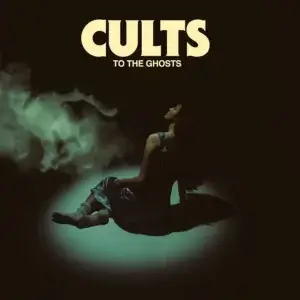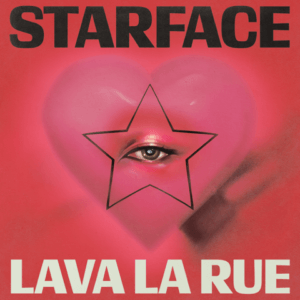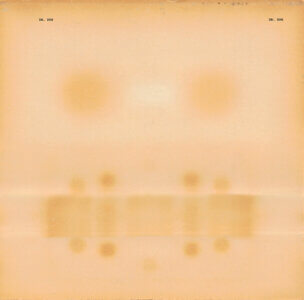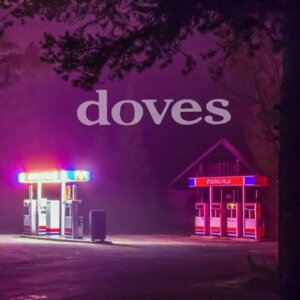
6.7
Straight Songs of Sorrow
Mark Lanegan
It wasn’t easy for Mark Lanegan to grapple with his tortured past for his new memoir, Sing Backwards and Weep, with the veteran songwriter calling the experience “probably the most unpleasant thing I’ve ever done.” The autobiography apparently explores his fractured relationship with his former band, the Screaming Trees, while also touching on friendships with Alice in Chains’ Layne Staley and Nirvana’s Kurt Cobain, and “a mountain of just shitty memories”; much of the context hinges on his ‘90s-period drug dependency. Straight Songs of Sorrow is a companion LP to the heaviness unearthed by the memoir, and while it is definitely cloaked in dark clouds, it’s a soundtrack that will arguably soothe Lanegan fans more than the unflinching harshness of the printed phrase. Still, it’s not for nothing that album bears such a grief-stricken title.
This is Lanegan’s second album in just six months. Last fall’s Somebody’s Knocking sported some of the cheeriest sonic textures of the gravel-voiced songsmith’s massive catalogue (see the post Cocteau Twins dream pop of “Dark Disco jag” or poptimist post-punk of “Name and Number”). Straight Songs of Sorrow takes a different tack, matching forlorn musings on addiction, death, and broken hope with a mix of folk textures and down tempo digitalism. The introductory “I Wouldn’t Want to Say” shivers into Suicide-style synth-bass snakiness and white noise beat production, before Lanegan delivers the disquietingly melodious warning: “Get out while you can/I will bring bad luck and misery to you, man”. The extended intro eventually gives way to “Apples from a Tree”, a tender acoustic piece featuring finger-picking from Lamb of God thrasher Mark Morton. Lanegan generally floats between these poles, with varying degrees of success.
The high points are high, though. Take “This Game of Love”, a lithe duet between Lanegan and his wife, Shelley Brien. Above minimalist washes of synth, they marinate on both the “devotion and warmth” love can bring, and what it feels like to experience loss “as painful as a heart attack”. “Stockholm City Blues”, meanwhile, is a harrowing but hushed look at addiction, where the artist details living out his days fix to fix (“I paid for this pain I put into my blood”). “At Zero Below” is stark and confrontational digital blues sung by a bad seed, benefitting from some extra fiddle sweepin’ from Warren Ellis.
There are, however, some lagging sprawls to contend with around Sorrow’s greatest hits. “Ketamine” is a low-energy drifter’s tale, further dragged down by a molasses-thick drum machine beat. “Bleed All Over” hints at heroin and co-dependency (“I wanted someone to bleed with”), but comes undone as Lanegan works through the memories with desperate, repeated drawls (“I’m haunted, I’m haunted, I’m haunted”).
“Internal Hourglass Discussion” is ambitious— pushing Lanegan’s husky vocals atop a twitchy, Kid A-period Radiohead groove— but the extended EDM experiment’s stream-of-conscious recollection of taxi rides, run-ins with the cops, and discovering a wallet on the ground seem a little unfocused. Few album tracks match the unhinged ferocity of “Ballad of a Dying Rover”, but the repetitive blues grind could have run a minute or two shorter.
Despite the album’s pacing issues, seven-minute centerpiece, “Skeleton Key” unlocks Lanegan’s full potential. It’s an aching epic, with ethereal keyboards, gently-distorted bass runs, and a bare snare clack backing up the musician’s downtrodden vibrato. The self-deprecation is strong, here, as he paints himself as ugly, unlovable, and unable to see through his apparent death wish (“Is it my fate to be the last one standing?”). Putting the latter in context with the tragic ends of Staley and Cobain makes for an especially gut-wrenching. While gargantuan and grim, it’s absolutely absorbing.
Straight Songs of Sorrow isn’t an easy listen. It’s an ambitious and uneven affair, but there are still a handful of solid tracks to gain out of Lanegan’s Sorrow.
review by Gregory Adams
Latest Reviews
Tracks
Related Albums
Related News
Advertisement
Looking for something new to listen to?
Sign up to our all-new newsletter for top-notch reviews, news, videos and playlists.













